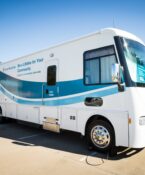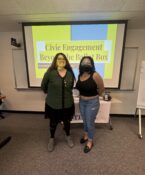The Undeniable Impact of Biomedical Research
Several weeks ago, I happened to read about promising new medical research into an experimental flu treatment made from human proteins that neutralized a wide variety of influenza germs. The affected germs typically cause seasonal illness, as well as the much more serious avian flu and the 1918 pandemic virus, which killed millions globally during and after World War 1.
As I reflected on this potentially good news, I began thinking about the ongoing value of medical research. Just a few generations ago, diseases like tuberculosis, smallpox and polio crippled and killed millions. Today, thanks to pioneering research, they’re almost non-existent and the benefits are obvious, both in terms of healthier worldwide populations and attendant increases in productivity. And as new therapies reduce the number of patients needing treatment and lower the overall cost of per-patient treatment, social benefits accrue exponentially.
To evaluate the economic value of medical research to society, we might begin by defining two broad categories: "clinical research," the evaluation of new treatments for safety and efficacy in clinical trials with patients; and "translational research," which combines basic laboratory research (theory and animal experiments) with clinical research results and contributes to the development of new treatments.
And at the risk of blowing our own horn, I think that Tarrant County can take justifiable pride in the fact that the UNT Health Science Center excels at both types of research.
For example, earlier this month the UNT Health Science Center celebrated its 17th Annual Research Appreciation Day (RAD), an institutional tradition encompassing medicine, public health and basic science. The event featured nearly 200 research projects on a wide range of heath issues including aging, Alzheimer’s disease, cancer, cardiovascular disease, diabetes, vision, osteopathic manipulative medicine, physical medicine, women’s health, public health and infectious diseases.
This research, invaluable in its own right, is also an economic spark plug:
- According to the U.S. Department of Commerce, every $1 spent on scientific research returns $2.49 to the Texas economy. Last year, UNT Health Science Center received $32 million in research funding, which clearly adds up to a significant economic impact. Much of the funding for this research comes from the National Institutes of Health (NIH), which, even as overall NIH budgets have stagnated, represents a tripling of research dollars to the UNT Health Science Center over the past eight years.
- Significant as they are, these figures don’t count intangible benefits. Universities with a healthy research budget are more likely to increase enrollment by attracting the brightest students and are also more likely to form partnerships with think tanks – pumping still more money into the economy.
- Health care providers affiliated with research facilities that conduct clinical trials have ready access to these research discoveries, which translate into better medical services for patients. Communities with superior health care benefit from a healthier work force, higher productivity and better quality of life.
But if findings stay in the lab, nobody benefits. That’s why TECH Fort Worth Acceleration Lab, a public-private partnership designed to support start-up companies built on emerging technology, is helping bring these discoveries into the real world where they benefit all.
As Dan Petty, president of the North Texas Commission, points out, "The North Texas Commission is strongly in favor of more scientific research that could lead to commercialization. In fact our chairman, Ken Barr, has led our board to establish an Innovation Committee of the North Texas Commission. The committee will be led by Wes Jurey, president of the Arlington Chamber and a leader in innovation activities in the North Texas Region. The North Texas Commission is squarely behind these efforts, that, if successful, will benefit greatly the economic vitality and quality of life for our region."
Former Fort Worth Mayor Kenneth Barr agrees. In his role as chairman for the regional non-profit North Texas Commission, he firmly believes in the power of medical research to promote economic vitality in our area. "Successful ‘innovation economies’ result from partnerships between universities and the private sector, especially when they focus on technology transfer from the lab to the marketplace."
So I think it’s fair to say that medical research certainly is capable of delivering business economic returns in the form of new patents, groundbreaking pharmaceuticals and treatment options that generate long-term dividends. But the greatest and most profound dividends are those that encompass long-term health solutions, in the form of a smiling child who has beaten cancer, or any patient who has benefited from new methods of healing and care.
Scott Ransom is president and professor in obstetrics, gynecology, health management and policy at the University of North Texas Health Science Center at Fort Worth.
![Uyen Sa Nguyen Scaled[58]](https://www.unthsc.edu/newsroom/wp-content/uploads/sites/16/Uyen-Sa-Nguyen-scaled58-145x175.jpg)




Social media